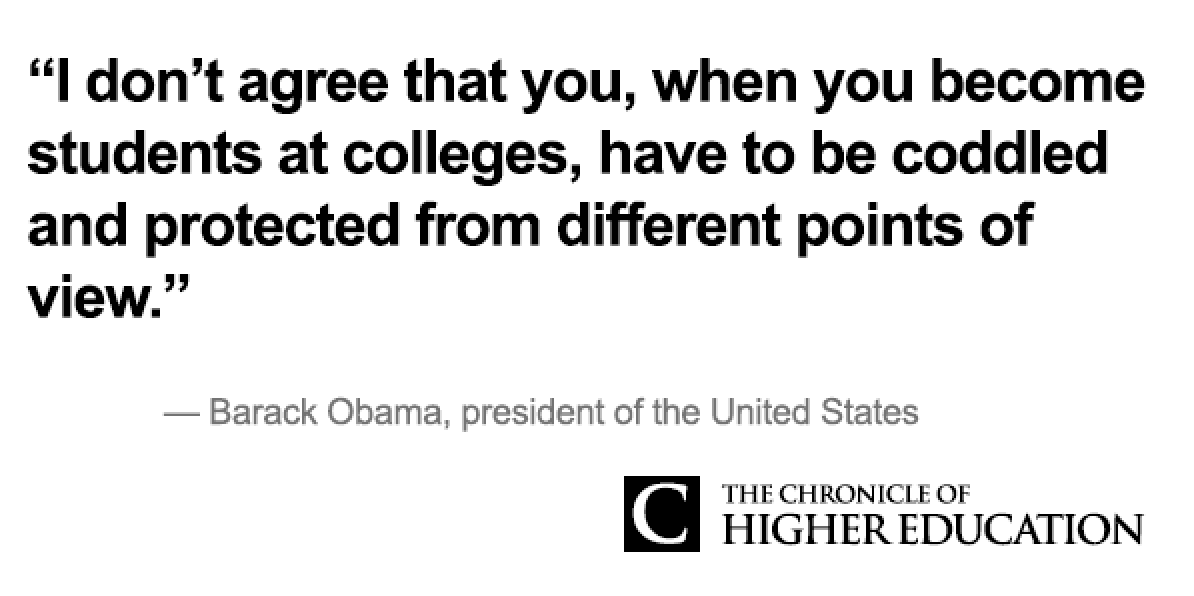 |
| Source |
Anybody who comes to speak to you and you disagree with, you should have an argument with them. But you shouldn’t silence them by saying you can’t come because I’m too sensitive to hear what you have to say. That’s not the way we learn, either.Of course, it generated constructive comments and also brought out the trolls. Thanks to one of those comments, I looked up the paragraph in an opinion by Justice Brandeis, who was the first Jewish member of the US Supreme Court:
To courageous, self-reliant men, with confidence in the power of free and fearless reasoning applied through the processes of popular government, no danger flowing from speech can be deemed clear and present unless the incidence of the evil apprehended is so imminent that it may befall before there is opportunity for full discussion. If there be time to expose through discussion the falsehood and fallacies, to avert the evil by the processes of education, the remedy to be applied is more speech, not enforced silence.That Supreme Court opinion was in 1927! Almost 90 years ago!!!
Rest assured that this not yet another post on the maniacs who have messed up what could have been an even more enjoyable career in higher education. This post is about how the higher education "establishment"--especially the student life bureaucracy--is leading students down the path of enforced silence, which is what Obama's comment is about.
Glenn Reynolds has more to say in the context of Obama's comments:
College isn’t supposed to be about having our prejudices reinforced. It’s supposed to be about learning how to think about ideas, and even to change one’s mind in the face of new arguments and evidence.I suppose such a perspective to engage in discussion of ideas is not always welcomed. Yet, I continue to seek that kind of an engagement, even in professional matters. A recent email that I sent to the provost of the university, included the following lines:
It’s also about learning to address ideas one doesn’t agree with. As Aristotle said, “It is the mark of an educated mind to be able to entertain a thought without accepting it.” You can’t do that if you’re not willing even to hear unacceptable thoughts.
I don't see any evidence out there to convince me otherwise. To borrow from John Maynard Keynes, I will change my opinion if the facts change.I am not holding my breath; I know all too well that the provost will not reply.
I am really, really, tempted to include the following in the syllabi for my courses:
Trigger Warning: This course will force you to think!Oh well!
3 comments:
I couldn't agree with you more. "Enforced silence" in an university ??? Blasphemy.
One possible nuance that might help is to present alternate view points in a cogent and logical manner which does not trigger fury and offence. You can make the same point in multiple ways. One is to ensure that the listener gets mad at you. The other is to do it with such finesse that the listener has no option but to consider. I think it is in this area that institutions of learning fail. Let me just say that tact and finesses are not qualities found in abundant supply in the education space.
Take this own blog. Some of your views I deeply disagree with. And yet, I come here all the time because you present your arguments well and its possible to debate constructively with you even when we completely disagree. In some cases the force of your argument has made me see things differently. Now, there's no way I will resort to "enforced silence" here. That is entirely to your credit.
Oh my!
Thanks for that, Ramesh.
Yes, we (including Anne, and some of the others who occasionally stop to comment) engage in discussions here despite the fact that we rarely agree. It is a credit to all of us, and we can certainly feel good about ourselves on this aspect.
Disagreements point out the weaknesses in our arguments and we then fine-tune our perspectives. Yet, students--these are voting-age adults!--need to be protected from serious and substantive debates?
BTW, Anne will be in quite some pickle with this post. Will she dare to agree with the President whose policies and politics cause her indigestion? Or, like most of the GOP, will she oppose Obama because, well, opposing anything he says is the political game at DC? hehehe ;)
No pickle here. Even a blind squirrel can find a nut occasionally. :) Yes, I think Obama is an idiot (and a few other things), but he is spot on here.
As much as learning and listening and thinking and discerning is important in college, I think we learn more about more important topics as we age. It can be hard for college students to admit they don't know everything or that they are wrong. It seems somehow easier as we become more mature to admit that we are ignorant, misinformed or apathetic about subjects. It took me far too long to realize that others' opinions are very valuable, that someone else may know a better way to do something or have a better answer. There is so much to learn in this wonderful world that if we don't ask questions and seek answers - and then puzzle over the answers that are unexpected or challenging - we will live a sheltered, boring, fruitless (what is the opposite of fruitful?) life.
Why, why not, and how should be at the forefront of every education, whether in college, in the working world, or in the nursing home.
Post a Comment